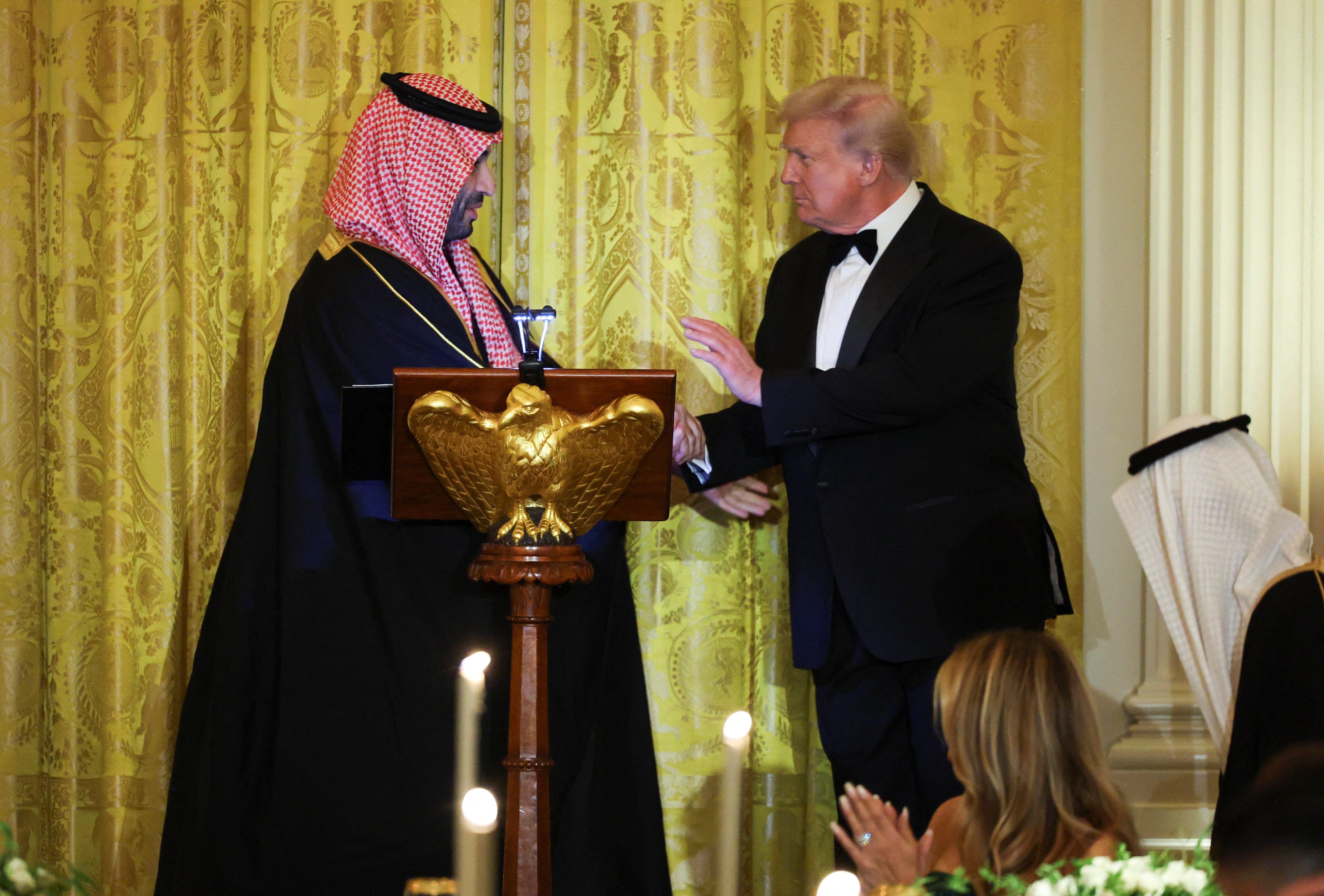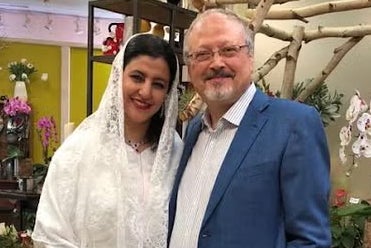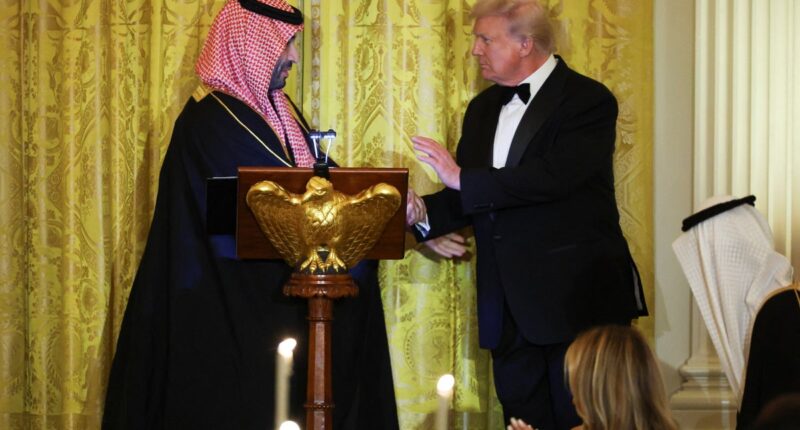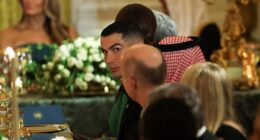The United States will elevate Saudi Arabia to “major non-NATO ally” status, granting the oil-rich autocracy preferred access to military and economic privileges and deeper ties with the American military-industrial complex.
President Donald Trump announced the country’s new status at a black tie dinner to honor Saudi Arabia’s prime minister and de facto ruler, Crown Prince Mohammed bin Salman, late Tuesday.
“I’m pleased to announce that we’re taking our military cooperation to even greater heights by formally designating Saudi Arabia as a major non-NATO ally, which is something that is very important to them,” Trump said.
He added that he had kept the move a secret until the dinner as a surprise for the crown prince, who has spent years cultivating deep ties with Trump’s family and business interests dating back to the president’s first term in the White House.
Turning to bin Salman, who is often referred to by his initials, MBS, Trump called the Saudi kingdom’s new status “another point you won today” in addition to what he described as a “historic strategic defense agreement” the two leaders had signed earlier in the day.

According to the U.S. State Department, countries with “Major Non-NATO Ally” status can receive “certain benefits in the areas of defense trade and security cooperation,” including eligibility for “loans of material, supplies, or equipment for cooperative research, development, testing, or evaluation purposes” and designation as a location for American military stockpiles.
The new designation means Saudi Arabia can also purchase U.S.-made depleted uranium ammunition, receive priority for delivery of surplus equipment — including warplanes and ships — and Saudi contractors will be permitted to bid on contracts to repair and maintain American military equipment.
Saudi Arabia will be the tenth country to formally receive major non-NATO ally designation, joining Argentina, Australia, Bahrain, Brazil, Colombia, Egypt, Israel, Japan, Jordan, Kenya, Kuwait, Morocco, New Zealand, Pakistan, the Philippines, Qatar, South Korea, Thailand, and Tunisia.
Taiwan is also treated as a major non-NATO ally under American law, but has not been formally designated as one because of America’s longstanding “one China” policy.
Trump’s announcement represents a new high point in relations between Washington and Riyadh after years of unease following the 2018 murder of Washington Post columnist Jamal Kashoggi — a U.S. permanent resident who was a fierce critic of the Saudi monarchy — by Saudi security agents at the country’s consulate in Istanbul, Turkey.

An assessment by the U.S. Intelligence Community that was declassified in 2021 found that MBS had approved the operation to either capture or kill the journalist because he “viewed Khashoggi as a threat to the Kingdom and broadly supported using violent measures if necessary to silence him,” though the Saudi government has denied the allegations.
Although Trump’s successor turned predecessor, former president Joe Biden, had vowed to make the Saudi leader a “pariah” during his 2020 presidential campaign, geopolitical realities led to Biden ending his efforts to isolate the crown prince, and since returning to office, Trump has enthusiastically embraced both MBS and the country he leads.
The president said he and bin Salman were making the “partnership” between their respective nations “closer and stronger than ever before” as he praised him as having helped the kingdom make “extraordinary strides” as it has “grown into an economic engine and really a modern-day miracle.”
“We’ve gotten to know each other well over the years, and he has become a true partner for peace and prosperity, for our countries and for the world and for peace in the Middle East,” he said.









